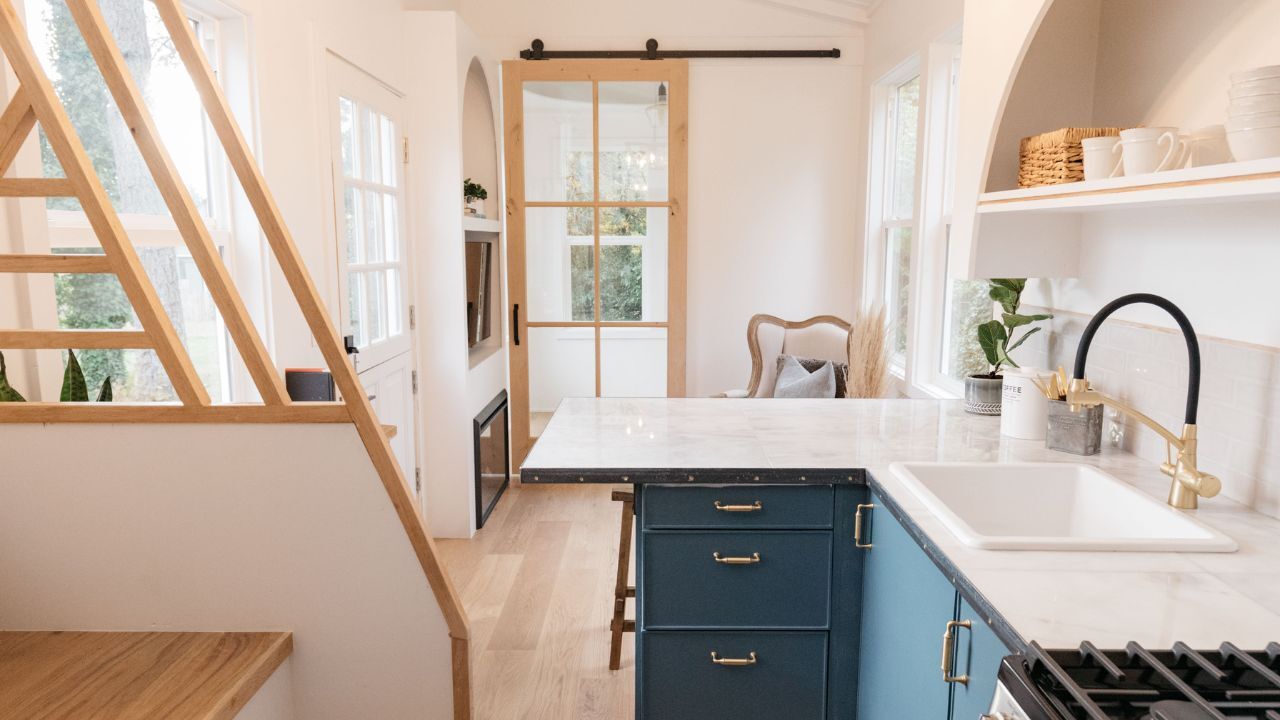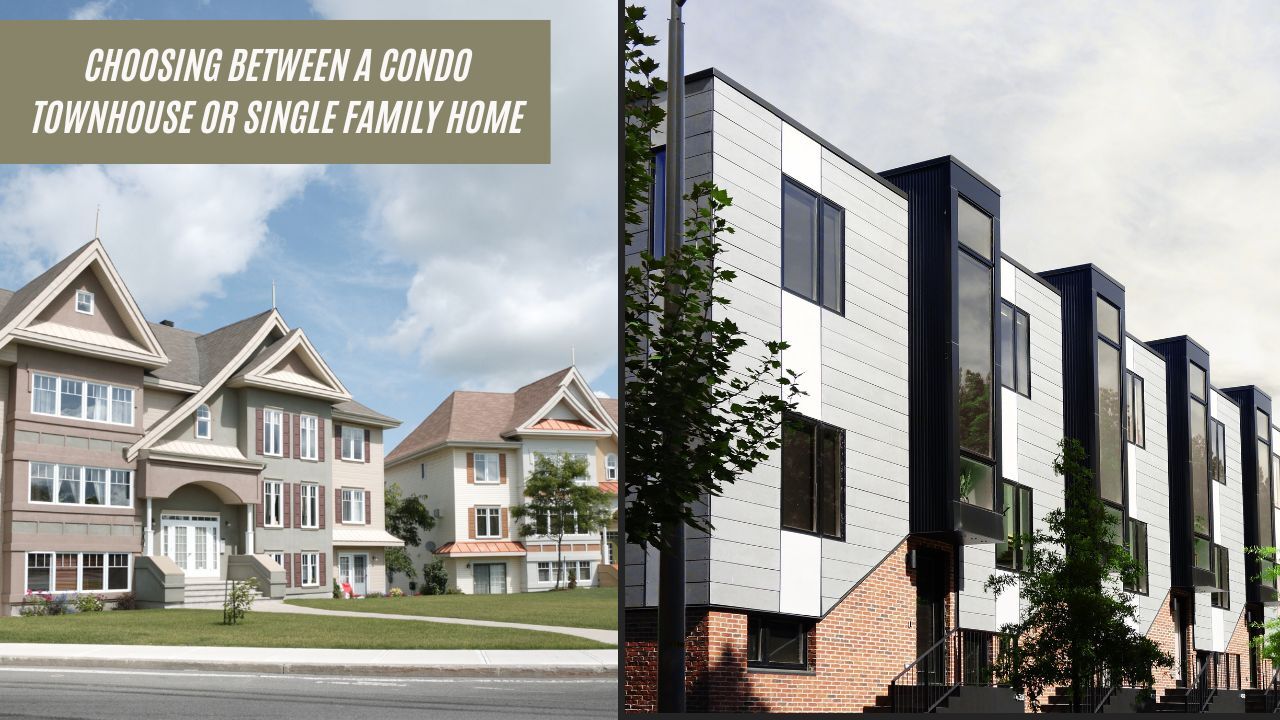 Tiny homes are more than just a trend; they represent a lifestyle choice that prioritizes efficiency, affordability, and sustainability. For many buyers, these smaller spaces provide a way to own a home without the financial burden of a traditional property. Understanding why people are choosing tiny homes, how to finance them, and ways to customize them can help you decide if this approach fits your lifestyle and goals.
Tiny homes are more than just a trend; they represent a lifestyle choice that prioritizes efficiency, affordability, and sustainability. For many buyers, these smaller spaces provide a way to own a home without the financial burden of a traditional property. Understanding why people are choosing tiny homes, how to finance them, and ways to customize them can help you decide if this approach fits your lifestyle and goals.
Why Buyers Choose Tiny Homes
Tiny homes appeal to buyers for several reasons. Lower purchase prices mean reduced monthly mortgage payments, making homeownership accessible to first-time buyers or those looking to downsize. They also allow for a simpler, more minimalist lifestyle, which can reduce ongoing maintenance costs and environmental impact. Additionally, tiny homes can be placed in unique locations, offering flexibility that larger homes cannot provide.
Financing a Tiny Home
Financing a tiny home can be different from traditional mortgages. Some lenders treat tiny homes like manufactured or modular homes, which may require personal property loans or specialized mortgages. Buyers may also consider using cash, personal loans, or home equity from an existing property. Working with a real estate professional familiar with tiny home financing options is essential to ensure you secure a loan that aligns with your budget and long-term goals.
Customizing Your Tiny Space
One of the biggest advantages of tiny homes is the ability to customize the space to fit your needs. Multi-functional furniture, creative storage solutions, and open layouts can make a small space feel comfortable and spacious. Buyers can incorporate sustainable materials, energy-efficient appliances, and smart home technology to enhance comfort while keeping costs low.
Making the Most of the Tiny Home Experience
Living in a tiny home requires careful planning and organization. Buyers should consider lifestyle factors, such as work-from-home needs, family size, and long-term growth plans. Tiny homes can provide a financial and lifestyle advantage, but success depends on thoughtful design, smart financing, and understanding the unique challenges of small-space living.
Tiny homes offer an exciting opportunity for buyers seeking affordability, flexibility, and sustainability. With the right planning and professional guidance, these small spaces can deliver big value, both financially and personally.
 House hunting can be exciting, but it can also be frustrating when you cannot find a home that meets your needs, budget, or lifestyle. Many buyers feel stuck, unsure whether to settle, wait, or consider alternative solutions. Understanding creative options can help you navigate a competitive market while still finding a home that works for you.
House hunting can be exciting, but it can also be frustrating when you cannot find a home that meets your needs, budget, or lifestyle. Many buyers feel stuck, unsure whether to settle, wait, or consider alternative solutions. Understanding creative options can help you navigate a competitive market while still finding a home that works for you.
 Deciding what type of home to buy is one of the most important steps in the home buying process. Condos, townhouses, and single-family homes each offer unique benefits and considerations, and the right choice depends on your lifestyle, budget, and long-term goals. Understanding the differences can help you make a confident decision.
Deciding what type of home to buy is one of the most important steps in the home buying process. Condos, townhouses, and single-family homes each offer unique benefits and considerations, and the right choice depends on your lifestyle, budget, and long-term goals. Understanding the differences can help you make a confident decision. The final walkthrough is one of the last steps before closing on your new home. It may feel like a formality, but it serves an important purpose. This is your chance to confirm that everything is in the condition you agreed to and that the home is truly ready for you to move in. Knowing what to expect can help you approach this step with confidence.
The final walkthrough is one of the last steps before closing on your new home. It may feel like a formality, but it serves an important purpose. This is your chance to confirm that everything is in the condition you agreed to and that the home is truly ready for you to move in. Knowing what to expect can help you approach this step with confidence. In today’s competitive real estate market, making a strong offer on a home can feel like walking a fine line. You want to stand out from other buyers, but you also want to avoid overpaying and stretching your budget too far. With the right strategies and guidance, it is possible to write an offer that is both competitive and smart.
In today’s competitive real estate market, making a strong offer on a home can feel like walking a fine line. You want to stand out from other buyers, but you also want to avoid overpaying and stretching your budget too far. With the right strategies and guidance, it is possible to write an offer that is both competitive and smart.